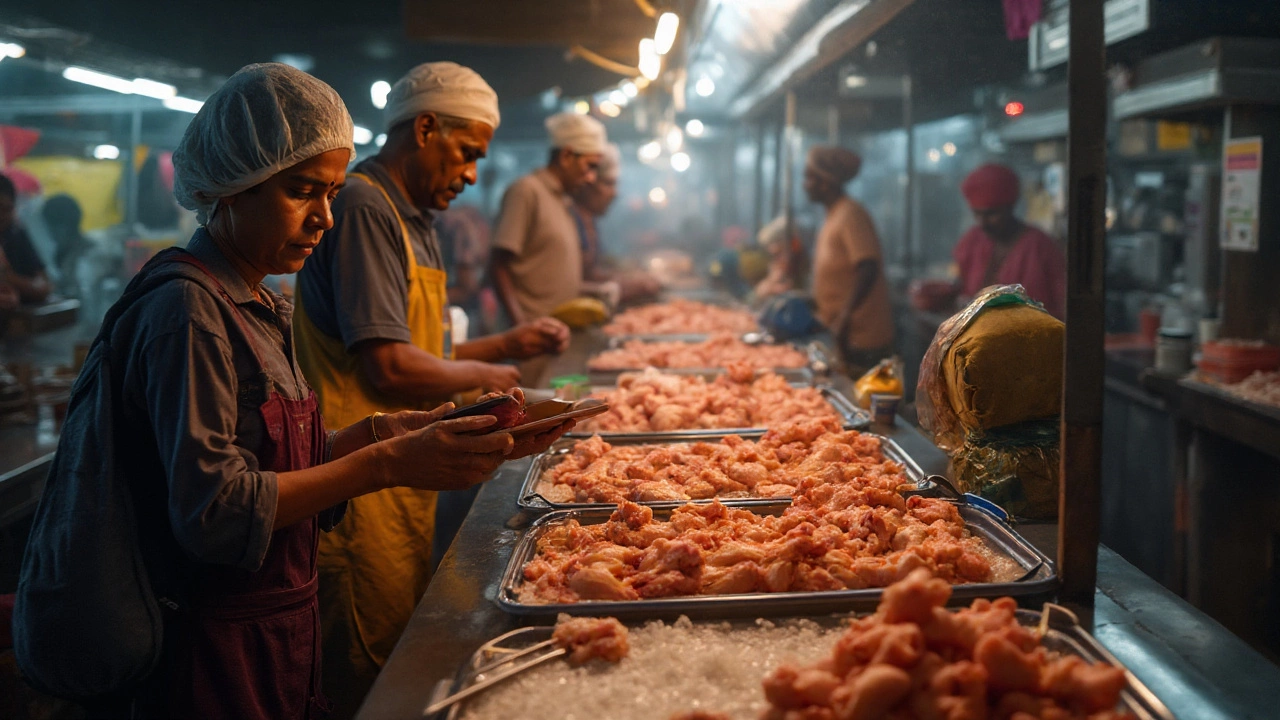
Can You Eat Chicken in India? Laws, Culture, Halal/Jhatka, Safety, and Best Dishes
Yes-chicken is widely eaten across India. Here’s how to do it right: laws, culture, halal vs jhatka, safety tips, pricing, festivals, and the best regional dishes.
When you hear halal, a method of slaughtering animals according to Islamic law or jhatka, a swift, single-stroke method used in Sikh and some Hindu traditions, it’s not just about food—it’s about identity, faith, and deep-rooted customs. The difference between halal and jhatka isn’t just technical; it’s emotional. One involves invoking God’s name while cutting the throat slowly to drain blood, the other demands an instant kill with a single blow. These aren’t just butchery techniques—they’re acts of worship, each tied to centuries of belief.
Many people assume halal and jhatka are simply about cruelty or compassion, but that’s not the full story. In Islamic slaughter, the animal must be alive and healthy when the cut is made, and the name of Allah is recited. For many Muslims, skipping this step makes the meat haram—not just unfit to eat, but spiritually wrong. On the other side, Sikh slaughter practices, which define jhatka, reject ritual prayer before killing. Sikhs believe that invoking God’s name during the act of death is unnecessary and even disrespectful—it’s the intention behind the life, not the moment of death, that matters. This isn’t about which is more humane; it’s about what each tradition says about the sacredness of life and the role of divine will in death.
These practices aren’t just theological—they’re lived. In Tamil Nadu, you’ll find halal meat sold in Muslim neighborhoods while jhatka meat is common in Sikh-run butchers in cities like Chennai or Coimbatore. In Punjab, jhatka is tied to community kitchens and temple meals. In Uttar Pradesh or Hyderabad, halal is the default for millions. The debate isn’t new, but it’s become louder in recent years—not because people care more about meat, but because food has become a symbol of belonging. What you eat, how it’s killed, and who prepared it can say more about your community than your language or dress.
There’s no universal answer here. No scientific study declares one method "better." The choice isn’t about nutrition or safety—it’s about respect. For some, halal is the only way to honor God’s gift of life. For others, jhatka is the only way to avoid what they see as prolonged suffering or ritualized control. And in India, where religion shapes daily life, this isn’t a footnote—it’s a daily decision.
Below, you’ll find articles that dig into how these practices intersect with culture, law, and personal belief. Some explore how Tamil communities navigate halal meat in a predominantly Hindu region. Others look at how jhatka became a marker of Sikh identity across India. You’ll see how food taboos, religious festivals, and even political movements tie back to these two methods. This isn’t about picking a side. It’s about understanding why these rituals matter so deeply to the people who follow them.

Yes-chicken is widely eaten across India. Here’s how to do it right: laws, culture, halal vs jhatka, safety tips, pricing, festivals, and the best regional dishes.